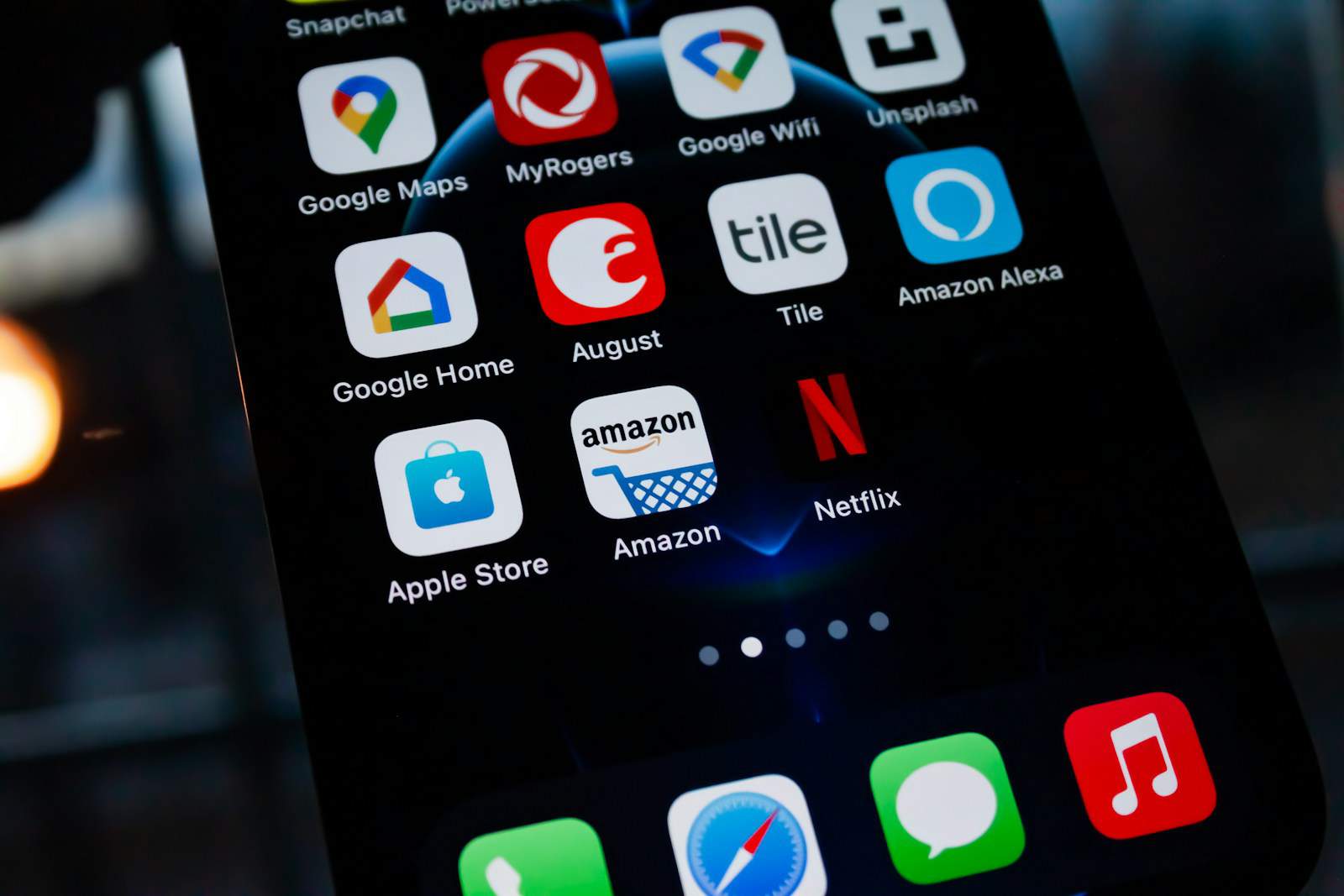H-1B visas allow U.S. companies to employ skilled foreign workers in specialized occupations. These visas play a crucial role in filling workforce gaps across various industries. Amazon leads the pack with 3,871 approved H-1B petitions for initial employment in 2024, followed by other tech giants like Microsoft, Google, and Facebook.
Many large technology firms rely heavily on H-1B workers to meet their staffing needs. IBM, Intel, and Apple are among the top employers of H-1B visa holders. These companies often cite a shortage of qualified domestic workers as the reason for hiring foreign talent.
The H-1B program has its critics and supporters. Proponents argue it brings valuable skills to the U.S. economy, while detractors worry about potential displacement of American workers. The debate continues as policymakers grapple with balancing economic needs and workforce protection.
Top H-1B Visa Employers
Understanding the H-1B Visa
The H-1B visa is a non-immigrant visa that allows U.S. employers to temporarily employ foreign workers in specialty occupations. These occupations generally require a bachelor’s degree or higher in a specific field, such as science, engineering, or information technology. Many companies in the tech industry rely on H-1B visas to hire skilled workers from other countries.
Top 10 H-1B Visa Employers
It’s important to note that the number of H-1B approvals can vary each year. The following list represents companies that consistently rank high in H-1B approvals. These figures are based on recent years’ data and may not reflect the precise numbers for a single specific year. The data is based on approved H-1B petitions for initial and continuing employment.
| Rank | Company | Estimated Number of H-1B Approvals (Annual Average) | Industry |
|---|---|---|---|
| 1 | Amazon | 5,000+ | Technology/E-commerce |
| 2 | Tata Consultancy Services | 4,000+ | IT Services/Consulting |
| 3 | Infosys | 3,000+ | IT Services/Consulting |
| 4 | Cognizant | 2,000+ | IT Services/Consulting |
| 5 | HCLTech | 2,000+ | IT Services/Consulting |
| 6 | Wipro | 1,500+ | IT Services/Consulting |
| 7 | Capgemini | 1,000+ | IT Services/Consulting |
| 8 | Deloitte | 1,000+ | Consulting/Professional Services |
| 9 | Ernst & Young (EY) | 1,000+ | Consulting/Professional Services |
| 10 | Microsoft | 1,000+ | Technology |
Observations
- IT Services Dominance: A significant portion of the top H-1B employers are IT services and consulting companies. These firms often use H-1B visas to staff projects for their clients.
- Tech Industry Reliance: Major tech companies like Amazon and Microsoft also rely on H-1B visas to bring in specialized talent.
- Fluctuations: The number of H-1B visas approved for each company can change from year to year due to various factors, including economic conditions and changes in immigration policies.
The H-1B Visa Lottery
The demand for H-1B visas often exceeds the annual cap set by the U.S. government. When this happens, U.S. Citizenship and Immigration Services (USCIS) conducts a lottery to select which petitions will be processed. This lottery makes it difficult for companies to predict exactly how many H-1B visas they will receive each year.
Alternatives to the H-1B Visa
For companies looking to hire foreign workers, there are other visa options besides the H-1B. These include the L-1 visa (for intracompany transfers) and the O-1 visa (for individuals with extraordinary ability). Each visa has its own specific requirements and eligibility criteria. Businesses can use these different visas to meet their workforce needs.
The H-1B visa plays an important role in the U.S. economy. It allows companies to access global talent and fill critical skill gaps. The top employers of H-1B visa workers represent a mix of industries, with a strong presence from the IT services and technology sectors. The annual cap and lottery system create a competitive environment for these visas. This makes it crucial for companies to understand the process and explore alternative options when necessary.
Key Takeaways
- Tech companies dominate the list of top H-1B visa sponsors
- The program aims to fill specialized job roles in the U.S. labor market
- H-1B visas remain a topic of ongoing debate in immigration policy
Overview of the H-1B Visa Program
The H-1B visa program allows U.S. companies to employ foreign workers in specialty occupations. This program plays a crucial role in filling skill gaps across various industries, particularly in technology and engineering sectors.
Eligibility and Application Process
To qualify for an H-1B visa, applicants must have a job offer from a U.S. employer in a specialty occupation. These jobs typically require at least a bachelor’s degree or equivalent. The application process involves several steps:
- Employer files a Labor Condition Application (LCA) with the Department of Labor
- Employer submits Form I-129 to USCIS
- If approved, the foreign worker applies for the H-1B visa at a U.S. embassy or consulate
The annual cap for H-1B visas is 65,000, with an additional 20,000 for those with advanced degrees from U.S. institutions. Due to high demand, USCIS often uses a lottery system to select petitions.
Top Employers of H-1B Visa Holders
Major tech companies consistently rank among the top employers of H-1B visa holders. Key players include:
- Amazon
- Microsoft
- IBM
- Apple
Indian IT services firms also heavily utilize the program:
- Infosys
- Tata Consultancy Services
- Cognizant
- HCL America
These companies rely on H-1B workers to fill positions in software development, data analysis, and other tech-related roles.
Trends in H-1B Visa Petitions
H-1B visa petition trends reflect shifts in the job market and immigration policies. Recent notable trends include:
- Increased scrutiny of applications, leading to higher denial rates
- Growing demand in emerging tech fields like AI and machine learning
- Fluctuations in petition numbers from year to year
For example, Amazon had 3,871 approved H-1B petitions for initial employment in 2024, down from over 4,000 in 2023. The tech industry continues to dominate H-1B usage, with Tesla emerging as a top employer in recent years.
Socio-Economic Impact of the H-1B Visa
The H-1B visa program has far-reaching effects on the U.S. economy, labor market, and immigration landscape. It shapes wage dynamics, influences policy decisions, and carries global implications.
Effects on U.S. Workforce and Wage Levels
H-1B visas impact employment opportunities and salaries for both U.S. and foreign workers. Tech companies rely heavily on H-1B visas to fill skilled positions. This practice can suppress wages in some sectors.
Critics argue H-1B workers displace U.S. employees. Supporters claim they fill crucial skill gaps. The truth likely lies somewhere in between.
H-1B workers often earn less than their U.S. counterparts. The program requires employers to pay the “prevailing wage,” but loopholes exist. This wage disparity can lead to broader salary stagnation in affected industries.
Tech giants like Intel and manufacturing firms use H-1B visas extensively. Their hiring practices shape local job markets and wage trends.
Immigration Policy and Reforms
H-1B visas are a hot-button issue in U.S. immigration debates. Policy changes can dramatically alter the program’s scope and impact.
Recent years have seen attempts to reform the H-1B system. The “Buy American and Hire American” executive order aimed to tighten regulations. It sought to ensure visas went to the highest-skilled, highest-paid workers.
Proposals to change the visa allocation process are common. Some suggest favoring salary levels over the current lottery system. Others advocate for stricter skills requirements.
The cap on H-1B visas remains a contentious point. Tech companies often push for higher limits. Labor advocates argue for maintaining or lowering the cap.
Geopolitical Considerations
H-1B visas play a role in international relations and global talent flows. They affect ties between the U.S. and major source countries like India, China, and the Philippines.
The program influences global competitiveness in tech and other high-skill industries. It allows U.S. companies to tap into worldwide talent pools.
Changes to H-1B policies can strain diplomatic relationships. Restrictions may lead to retaliatory measures from affected nations.
The visa program also impacts brain drain in developing countries. It can deprive these nations of their most skilled workers.
Geopolitical tensions, such as U.S.-China relations, can affect H-1B visa approvals and overall program dynamics.







